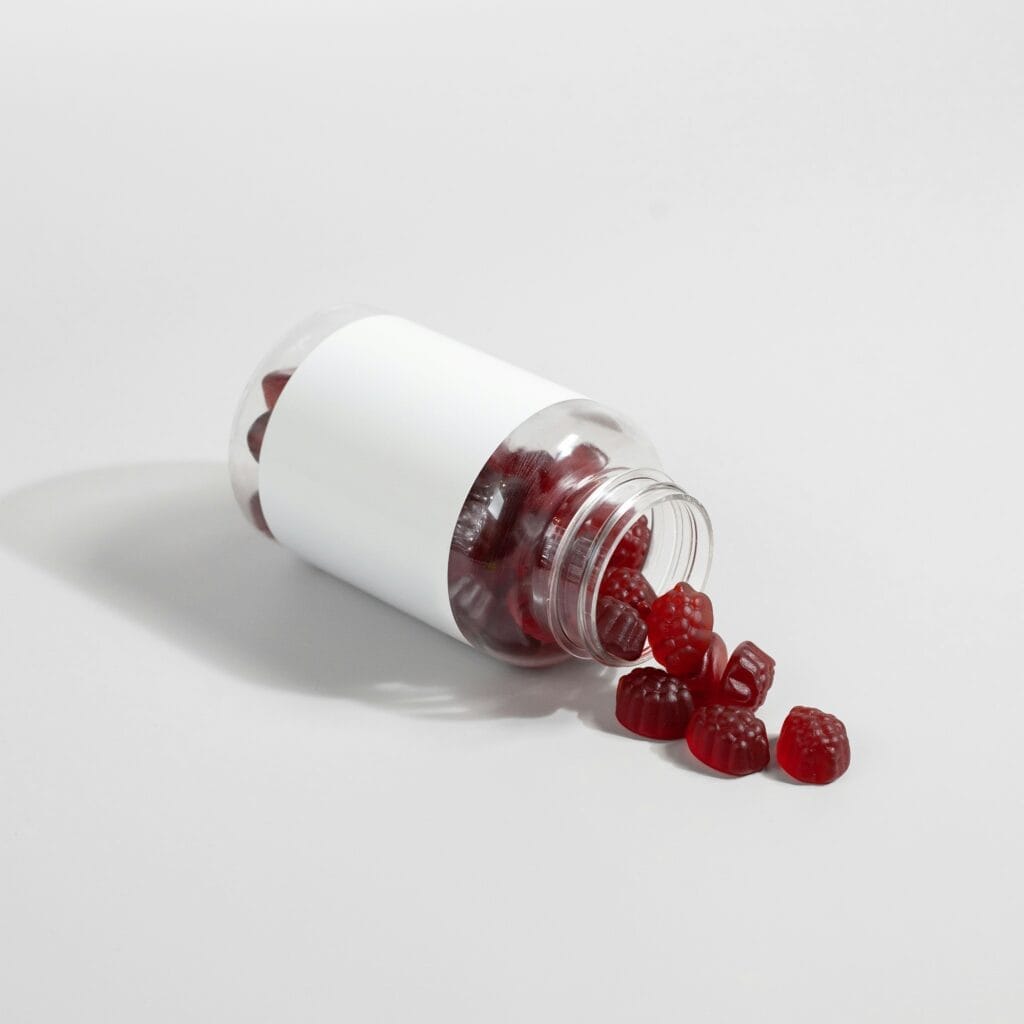*This article contains affiliate links*
Perimenopause is a transitional phase that many women experience in their 40s and 50s, marking the shift towards menopause. As hormone levels begin to fluctuate, women may notice changes in their mood, energy levels, sleep patterns, and overall well-being. While a balanced diet and healthy lifestyle are essential, supplements can offer extra support during this time.
From the well-known supplements to the lesser-known ones, here’s a guide to the best supplements for perimenopausal women and how they can help.

1. Calcium and Vitamin D
Why they help: One of the most well-known concerns during perimenopause is the potential decline in bone density due to lower oestrogen levels. Calcium and Vitamin D are essential for maintaining strong bones and reducing the risk of osteoporosis.
What form is best: Both calcium and vitamin D are available in tablet, capsule, and powder forms. Powder supplements are easier to digest and can be added to smoothies or drinks, making them a good option if you struggle with larger pills.
2. Magnesium
Why it helps: Magnesium is a powerhouse mineral that helps with a range of perimenopausal symptoms. It aids in relaxing muscles, promotes better sleep, and can ease symptoms like anxiety and mood swings, which are common during this phase.
What form is best: Magnesium supplements come in tablet, capsule, and powder forms. Powdered magnesium is highly absorbable and works well when added to water before bedtime to help with sleep and relaxation. You can also apply a magnesium spray to your body, which will be absorbed through the skin, directly into the bloodstream.
3. Omega-3 Fatty Acids
Why they help: Omega-3s are known for their anti-inflammatory properties and can help reduce the risk of heart disease, a concern that can become more prominent during perimenopause. They also support brain health, which can help with mood regulation and cognitive function.
What form is best: Omega-3s are often available in soft gel capsules, but you can also find them in liquid form. If you find capsules difficult to take, liquid omega-3 can be mixed into foods like yogurt or smoothies.
4. B Vitamins (Especially B6 and B12)

Why they help: B vitamins are essential for energy production and can help combat fatigue, one of the most common complaints during perimenopause. B6, in particular, helps with mood regulation and can ease symptoms of depression and irritability. B12 is important for brain health and cognitive function, both of which can decline with hormonal shifts.
What form is best: B vitamins are available in tablets, capsules, and powders. B vitamin complexes are typically taken in tablet form, but if you need a higher dose or struggle with tablets, powders are a convenient alternative to add to your daily routine.
5. Evening Primrose Oil
Why it helps: Evening primrose oil is a well-known supplement for perimenopausal women, often used to alleviate symptoms such as hot flushes, mood swings, and breast tenderness. The gamma-linolenic acid (GLA) in evening primrose oil has anti-inflammatory properties and may help balance hormone levels.
What form is best: This supplement is typically available in capsule form, though it is sometimes sold as an oil. Capsules are more convenient and ensure consistent dosage, but liquid oil can be used for those who prefer a different method.
6. Probiotics
Why they help: Gut health is increasingly recognised as being important for overall well-being, and hormonal changes during perimenopause can affect digestion. Probiotics can support healthy digestion, reduce bloating, and even positively influence mood by balancing gut bacteria.
What form is best: Probiotics are available in capsule and powder forms. Powdered probiotics are easy to add to water or smoothies, but capsules ensure a more controlled release and can be more convenient when on the go.
7. Ashwagandha
Why it helps: This adaptogenic herb is known for its ability to reduce stress and balance hormones, making it an excellent supplement for perimenopausal women. Ashwagandha can help improve mood, reduce anxiety, and support better sleep, which can often be disrupted during this phase.
What form is best: Ashwagandha is available in both capsule and powder form. Powders are great for adding to teas, smoothies, or even baking, but capsules offer a more convenient way to take this herb without the strong taste.
8. Collagen
Why it helps: Collagen levels naturally decline as we age, and this can lead to skin thinning, joint pain, and reduced elasticity. Collagen supplements can help support skin health, improve joint mobility, and maintain muscle mass, which can decline with the hormonal changes during perimenopause.
What form is best: Collagen is most commonly available in powder form and can easily be mixed into coffee, smoothies, or soups. It’s flavourless, making it a versatile option to incorporate into your diet.

9. Red Clover
Why it helps: Red clover is a lesser-known supplement that contains phytoestrogens, plant-based compounds that mimic estrogen in the body. This can help alleviate common perimenopausal symptoms such as hot flushes, night sweats, and mood swings.
What form is best: Red clover is available in capsule and liquid extract forms. Capsules are the most common and convenient option, but liquid extracts can be added to water or tea for easier consumption.
Tablet vs. Powder: Which Is Best?
Whether to take supplements in tablet or powder form depends on your personal preference and absorption needs. Tablets and capsules are often more convenient, ensuring an exact dosage and easy portability. However, powders can be easier to digest and are great for those who struggle with swallowing pills. Powders are also versatile and can be added to smoothies, drinks, or food, allowing for flexibility in your daily routine.
An all in one?
PeriMenoFriend® is the uniquely comprehensive supplement with clinically proven botanicals, phytoestrogens, vitamins and minerals to naturally regulate hormones through perimenopause for mental performance, clearer thinking, a balanced mood, muscles, joints, energy, and combatting tiredness and fatigue.
95% of customers said PeriMenoFriend® was effective when taken for two months or more, in a survey of 162 customers.*
If you fancy giving these a go, I can offer my readers an exclusive 30% off your first 2 months of subscription with the code FEVER30.**
*In October 2024, nationally representative, not influenced or verified by any 3rd parties.
**New PeriMenoFriend® customers only. After 2 months the price will return to the normal subscription RRP price.
Conclusion: Supporting Your Body Through Perimenopause
Perimenopause can bring a host of new challenges, but with the right supplements, you can support your body through this transition. From boosting your bone health with calcium and vitamin D to improving mood and sleep with magnesium and ashwagandha, there are a wide variety of supplements that can ease perimenopausal symptoms and improve your overall well-being. No matter which supplements you choose, it’s important to prioritize quality and consistency while maintaining a balanced diet and healthy lifestyle. With the best menopause supplements, you can take control of your well-being and thrive during this transformative time. Whether you prefer tablets or powders, incorporating these supplements into your daily routine can make a big difference in how you feel.

